wats, 20s, he/him goncharov side-blog of @a-foul-bauble-of-mans-vanity
Don't wanna be here? Send us removal request.
Note
Katya reading Homestuck
> Katya: Read Homestuck.

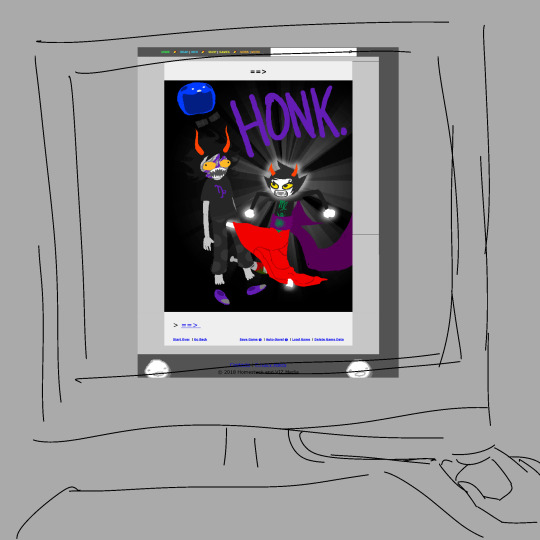

I think Kanaya would cause a rare Katya Smile™️
679 notes
·
View notes
Text
33% of goncharov fics on ao3 include a sapphic pairing which means this fake movie has a greater percentage of sapphic fics than most real fandoms
10K notes
·
View notes
Photo

katya sorta, kinda falling for sofia
1K notes
·
View notes
Photo

Robert DeNiro at Moscow Film Festival (1987)
942 notes
·
View notes
Photo

I really wasn’t expecting this old paper of mine to suddenly be relevant, but… did you know I did a whole study of Goncharov fandom? I doubt anyone even remembers alt.goncharov, but there was this absolutely wild thing where in the late nineties the community was essentially taken over (from Scorcese fanboys) by fanfiction writers and shippers. It was AMAZING. I saw @destinationtoast ‘s post about Goncharov AO3 stats and I really hope that some of the stories there are from folks who posted on alt.goncharov back in the day. Because I read a LOT of fic when I was doing this research, and that late nineties Katya/Sofia REALLY holds up. ::chef’s kiss:: Seriously, alt.goncharov was ahead of its time and the fans involved were the coolest.
Anyway let me know if you have questions about this research!
Title: Ships and Ice Picks: An Ethnographic Excavation of alt.goncharov
Abstract: Many research studies of early fandom and fanfiction online communities have focused on well-known fandoms such as Star Trek and X-Files. In this paper, I describe findings from trace ethnography and discourse analysis of archived posts from the Usenet group alt.goncharev. During the time period between 1995 and 1999, the community underwent a significant shift from discussions of the film itself to a focus on fanfiction and “shipping.” I argue that this forgotten fan space reflected an early microcosm of the kinds of fandom discourse we see decades later, with respect to the largely gendered conflict that ensued as this shift occurred. I conclude that just as fanfiction writers managed to “win” control of alt.goncharov, in our current time we will continued to see increased attention to and respect for transformative fandom and queer fans in particular.
2K notes
·
View notes
Text
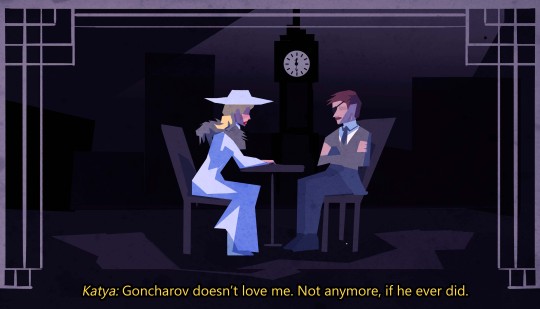
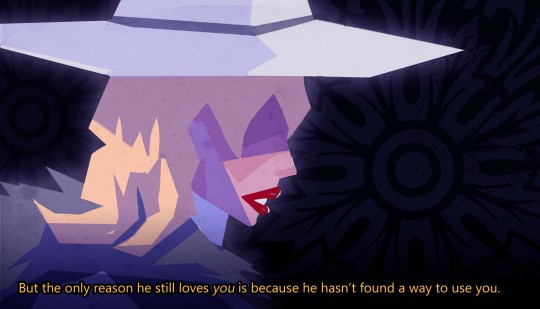
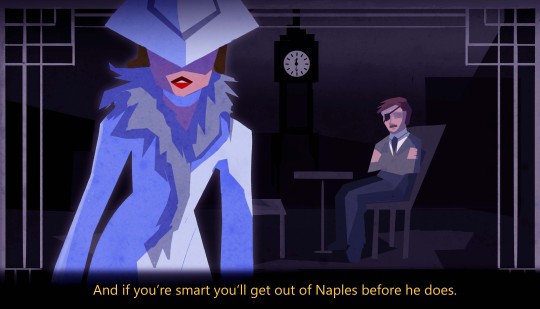
My husband is a man who collects things he can use. A pistol, a pocket-watch, a woman's love, a wife....
I'm obsessed with That Scene(tm) between Katya and Andrei in the California Director's Cut Rerelease of Goncharov, so I did a lighting study inspired by the film's Art Deco Posters! Little details like Katya never referring to her husband by his first name really add to Andrey and Katya's tense dynamic, which is one of the most underrated parts of the movie imo.
44K notes
·
View notes
Photo
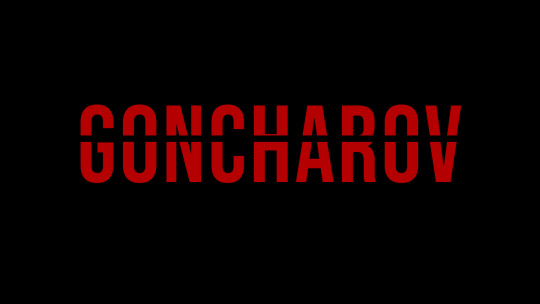
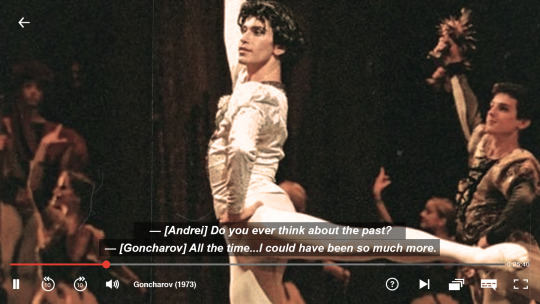
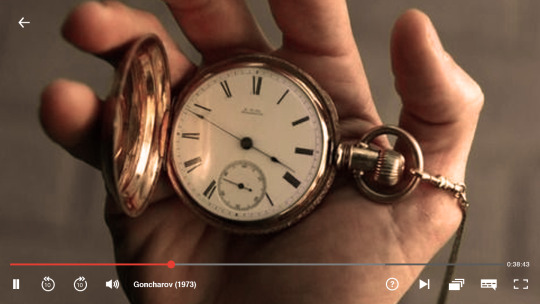
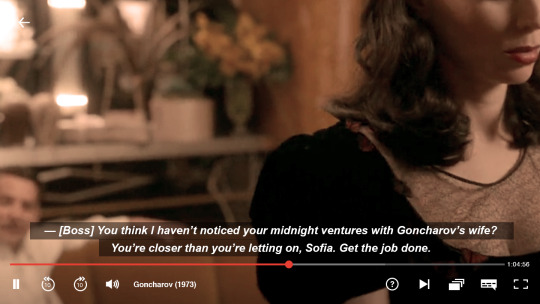

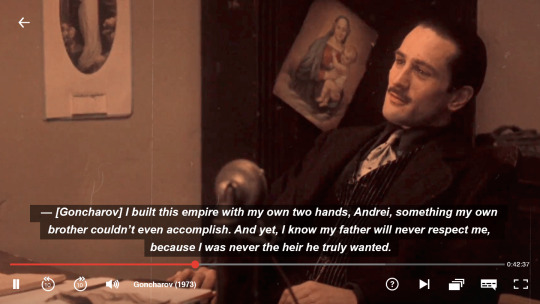
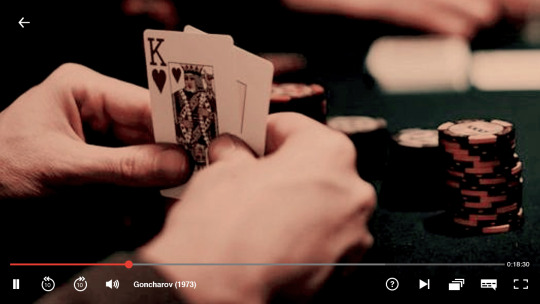
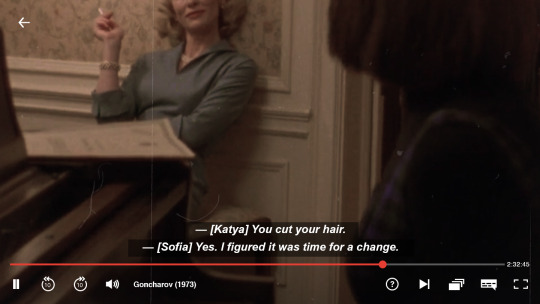
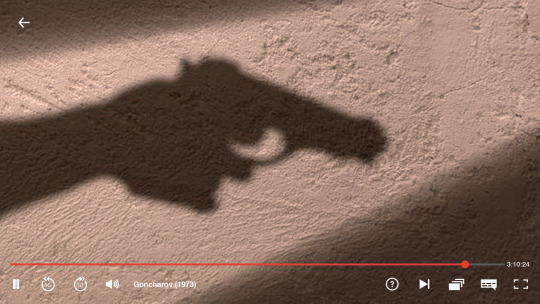
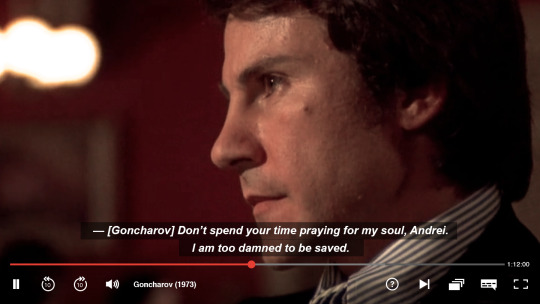
GONCHAROV (1973) dir. Martin Scorsese
“It funny because for many years people thought Goncharov was the main antagonist of the film, after all, he’s the one everyone’s out to get, right? But it seems people are starting to understand that in actual fact, it is time that is the main adversary in this story. There’s never enough of it and that torments a lot of characters, especially Goncharov, because he’s fighting so desperately to find his place in a world that is so keen on keeping him ostracized.”
[template by @bitchronan]
54K notes
·
View notes
Text
Ich glaube das schlimmste an der deutschen Übersetzung von Goncharov ist, dass sie es "Goncharov - Schüsse in Rom" genannt haben. Hallo?? Es gibt eine Szene die in Rom spielt. Eine.
2K notes
·
View notes
Text
I redraw my favorite scene from Goncharov
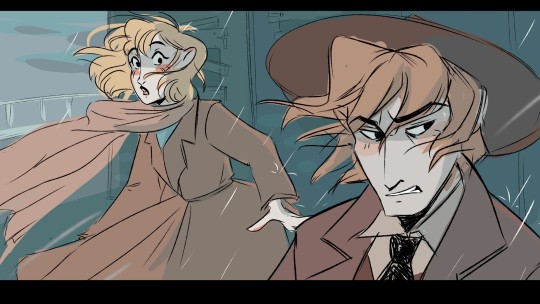
255 notes
·
View notes
Text

this movie made me cry four fucking times that ending bruh
195 notes
·
View notes
Text
The underground Goncharov re-enactments of the 1980's would would see a resurgence in the new millennium, as amateur bit-comedy and homemade video slowly took off during the era of early internet. While oral history kept the legacy alive, it was the publication of The Dark and Gilded Stage (2005) by Simone Amira, a former manager of The Gazelle theatre club in Soho, that ensured the stage plays finally re-entered the community consciousness.
In the mid-2000’s, university drama club stagings would heavily satirise the machismo culture of the mafia genre; actors would gender-flip the script, double-cast the characters, even change the locations to play out their interpersonal crime drama in absurdist time-displaced settings. The Naples mafia would be traded for the gangsters of Victorian London, the triads of 70's Hong Kong, or the yakuza of Tokyo.
However, it was the work of Luton playwright Samantha Krycek that brought the Goncharov stage adaptations to the serious attention of the theatrical and academic elite. Twelve Hands of the Clock (2009) was a bold, experimental work that took inspiration from the queer undertones of Terence McNally’s Corpus Christi and the absurdism of Dead Centre’s Chekov’s First Play.
Twelve Hands of the Clock puts Goncharov, Andrey, Katya, and Sofia into a time loop where they are forced to act out the last twelve minutes of the film, several times in a row. Each loop lets one character become self-aware of their fate as narrative prisoners while the audience, both innocent onlookers and apathetic bystanders in tragedy, are forced to bear witness to their desperate attempts to escape the narrative. Faced with the sudden knowledge that their actions are inconsequential to their fate, each character breaks out of their story in successively more brazen ways. First loop, Katya shoots Goncharov. Third loop, Sofia saves Katya. In the fifth loop, Andrey confesses his love and kisses Goncharov within the first minute, and they spend the remaining time talking about their future away from the mafia. The next loop, Andrey has forgotten the conversation, but Goncharov remembers. In the penultimate loop, Goncharov saves himself, kisses Andrey, kisses Katya, and then leaves them both to die. Then, finally, the last loop follows the film's ending down to every beat, the story snapping back into place. The play makes a show of buckling to the relentlessness force of tragedy — the characters cannot save themselves, but in the liminal space of twelve minutes, they are allowed to find a brief moment of respite. Goncharov gets to live before getting shot. Andrey saves his friend before he has to kill him. Sofia gets to leave before she is dragged back. Katya survives her wounds before dying. Each loop has no effect on the next, but their brief moments of agency matters in spite of it. A 2010 recording of Twelve Hands of the Clock on during run at London's Union Theatre took the internet by storm. Discussions, then backlash, soon followed. Heated debates were held by literature critics on the play’s portrayal of interpersonal relationships, while film enthusiasts railed against the perceived parody of a mafia genre masterpiece. Twelve Hands of the Clock was always intended to an homage to Goncharov’s historical legacy amongst the the queer community, making direct references to the culture of collective storytelling of the 1980’s underground theatre. However, this was first time queer interpretations of Goncharov was brought into the popular consciousness and distributed to a larger, mainstream audience. Unable to control its reception and decontextualised from history, it found itself as point of contention, its sincere and emotional queer tragedy reduced to a punchline by late-night comedians and the early internet.
In subsequent years, however, Twelve Hands of the Clock gained a small but loyal following. While most of its fans admit to being indifferent to the mafia film as a genre, they see the production as a metaphor for queer community — internal to the text, the play’s time loop is about the sacredness of queer safe spaces. Metatextually, its reception is a cautionary tale about safekeeping queer culture.
Francine Rubek and Samson Jian, Under the Queer Gaze (2014, Palgrave Macmillan)
374 notes
·
View notes
Text


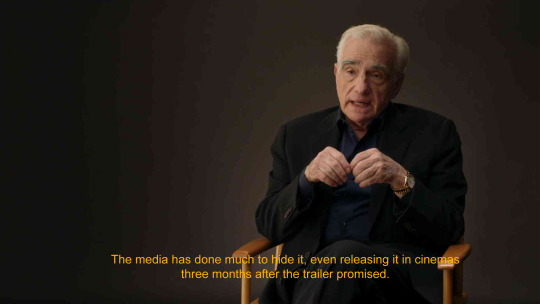


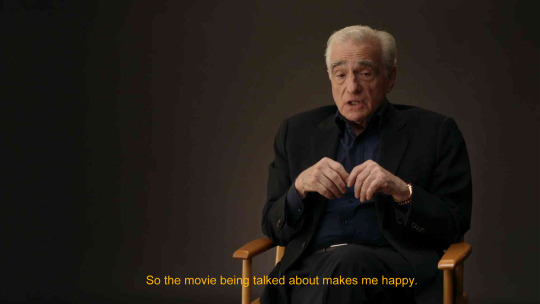
Martin Scorscese speaks about his journey as a director and mentions his hidden cult classic "Goncharov"(1973) An interview with Martin Scorscese by Rolex
91 notes
·
View notes
Text

Alternative screen print version of Katya’s character poster for Goncharov (1973).
45K notes
·
View notes
Text
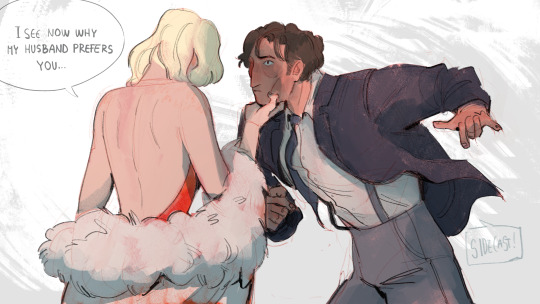
you have no idea what i wouldn't give just for them to have more scenes together
44K notes
·
View notes
Text
I finally fucking did it
"The problem is - you think you have time"
Goncharov, 1973 dir. Martin Scorsese
538 notes
·
View notes

